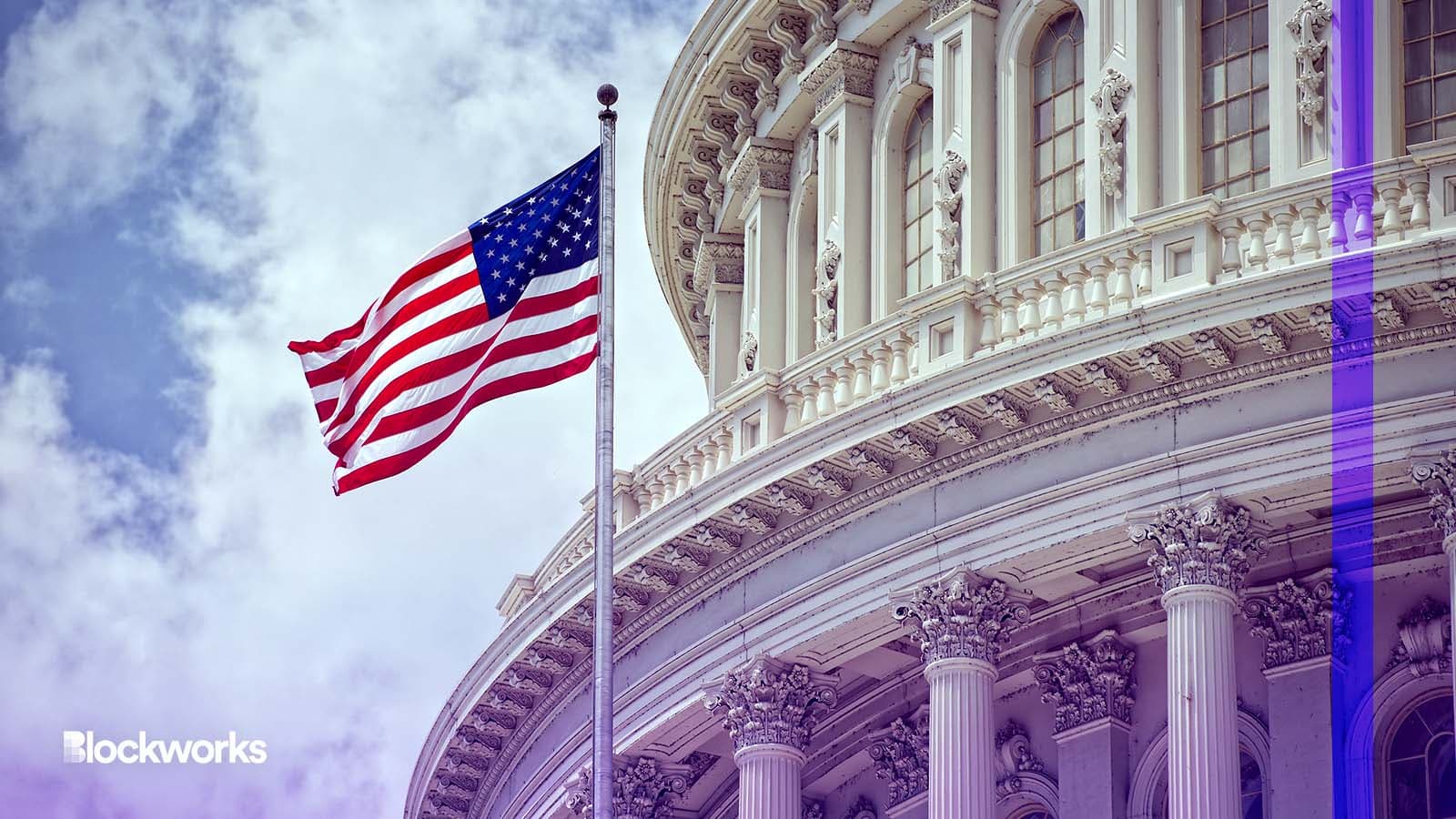House Stablecoin Hearing 2.0: Lawmakers Squabble Over Competing Bills
Lawmakers duked it out over some of the more contentious points highlighted in two competing stablecoin bills

Andrea Izzotti/Shutterstock modified by Blockworks
The House Financial Services Committee’s digital assets subcommittee gathered again Thursday to talk stablecoin policy. This time around, lawmakers had two competing bills to consider.
Republicans released their version of the bill in April before the Financial Services Committee’s stablecoin hearing. Ranking Member Maxine Waters, D-Cali., dropped her rival draft earlier this week. Neither bill has made it to the floor.
“We’re not starting from scratch,”Subcommittee Chair French Hill, R-Ark., said at the start of the hearing. She said the Democrats would have to go back to the drawing board for their bill, presumably referencing former comments from Rep. Waters.
“The similarities between the two proposals are strong, and that’s why we’re not that far apart,” Hill added.
The two bills do have similar language, and they are almost exactly the same length, but Waters’ draft makes sure to hit the key points parties have been fighting over since last session.
Current areas of agreement include: the composition of stablecoin reserves (both bills include cash, short-term Treasury bills, and central bank reserve deposits), requiring issuer applications to be approved or denied within 90 days, and recognizing stablecoins as non-securities, allowing the SEC to take a backseat in this matter.
During Thursday’s hearing though, lawmakers took the opportunity to try and hash out some of their differences; namely the role of state regulators and who the primary regulator should be.
In their draft, Republicans allow stablecoin issuers to register through state-level agencies. Issuers would then have 180 days to submit all required registration materials with Federal regulators. If the bill passes, the Federal Reserve will have 180 days to establish exactly what these requirements are.
Democrats propose granting state regulators the authority to approve issuer registration, while the Federal Reserve retains the power to approve or deny federal registration.
Rep. Stephen Lynch, D-Mass., challenged the role Republicans allot state regulators, stating that it encourages a “race to the bottom.” Crypto companies have a tendency to “escape regulation,” he said.
New York’s current stablecoin policy framework is impressive and “important,” Lynch admitted, but there is no guarantee other states will take the same approach.
Hill advocated for the Office of the Comptroller of the Currency to take the lead on stablecoins, noting its current broad role in the financial system makes it well-equipped.
“The OCC is, at heart, a supervisor and examiner of banks and trust companies, so they are qualified to do that,” witness David Portilla, partner at Davis Polk & Wardwell LLC, said during the hearing.
Capitol Hill insiders are not confident either bill draft will make it to the floor, at least in their current versions. A bill only endorsed by Republicans has next to no chance of making it through the Senate, sources told Blockworks last month, so finding some bipartisan agreement will be essential.
Get the news in your inbox. Explore Blockworks newsletters:
- The Breakdown: Decoding crypto and the markets. Daily.
- 0xResearch: Alpha in your inbox. Think like an analyst.






